For Evan Roth, the owner of Cartesian Brewing in South Philly, his interest in supporting local agriculture and food systems didn’t start with beer, but with cheese. As a teenager growing up in the Doylestown area, he experienced his first glimmer of how different it can be to shop local when he’d visit the town’s artisan cheese shop, and discovered how much more he enjoyed the experience.
“At the supermarket you’re just buying something off the shelf, but at a smaller shop you’re able to have more intimate and detailed conversations with the people working there about the products and their origins,” Roth says.
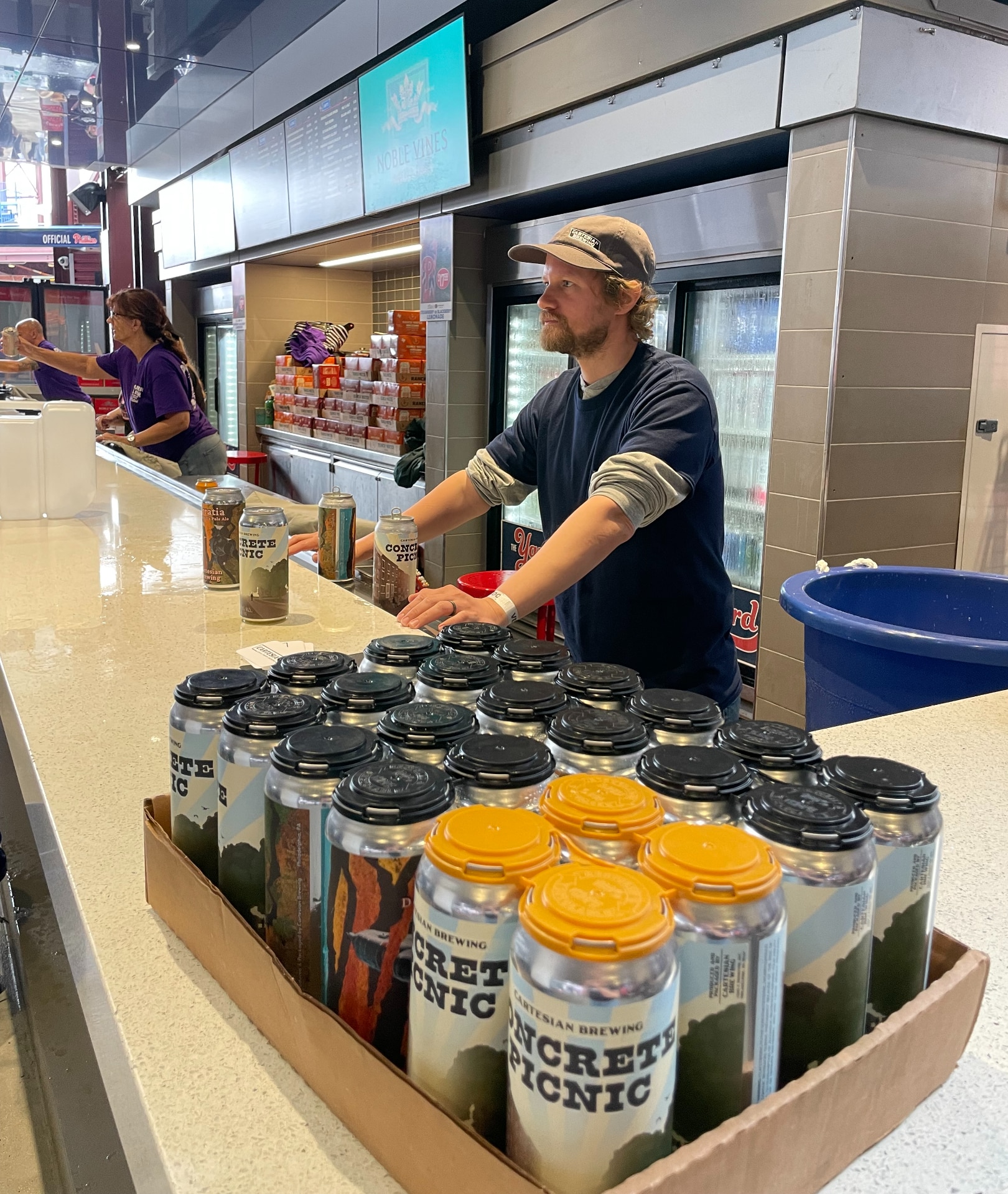
Cartesian Brewing’s founder/owner Evan Roth
In college, Roth studied engineering and wasn’t planning on a career in craft beer or small business ownership. In fact, he was working as an engineer when he first started developing his business plan for a brewery; he’d been home brewing since 2011, and after moving to South Philadelphia, realized that there was no home base brewery in the neighborhood. Fed up with the litigious culture of engineering, Roth decided he was the right person to bring a brewery to his new neighborhood.
“In June of 2016, I had the grand debut of my plan,” Roth remembers. “I invited everybody I knew to Arch Enemy Gallery in Old City where I had a beer event and presented my business plan to the world.”
He worked with a tenant broker, who helped him find Cartesian’s current space on Passyunk Avenue, which combined a laundry list of “musts,” including solid infrastructure with no basement, tall enough to house tanks and a walk-in fridge, and zoning that would allow for the proper variances to house a brewery and taproom. He finally secured the space and signed a lease in March of 2019, and secured funding by the summer of 2020. Because of code issues and construction delays, the buildout wasn’t completed until the fall of 2021; Cartesian Brewing officially opened that October.
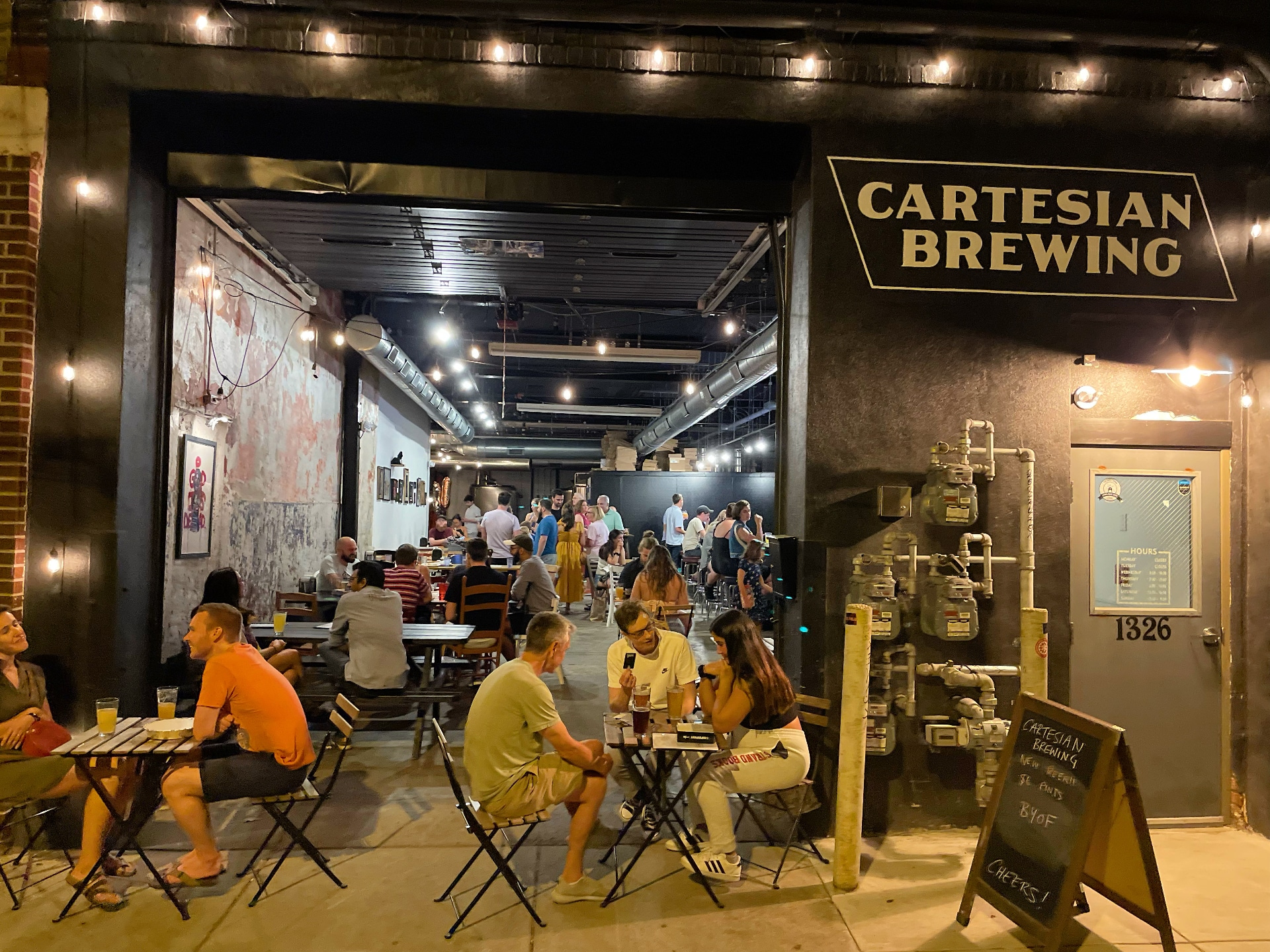
Throughout the years between launching the first business plans and actually opening the doors to his space, Roth had a lot of time to conceptualize exactly what kind of brewery he wanted to share with his community. As a home brewer, he’d started buying locally malted grains as soon as he realized they were available. On this new, larger scale, he wanted Cartesian to prioritize local ingredients whenever possible. For him, this ethos has two main components: economic and ecological.
“First, keeping money local is crucial. Second, decentralized agriculture is something that’s important; for instance, in 2008, there was a hop shortage because of disease and local conditions, proving that centralized hop growing doesn’t allow for a robust supply chain, and by decentralizing it you allow for an uninterrupted supply of raw materials,” Roth notes. “Sourcing locally also reduces your carbon footprint via shipping — by using local grain that’s been locally malted and delivered locally, you’re significantly reducing the miles those products have traveled.”
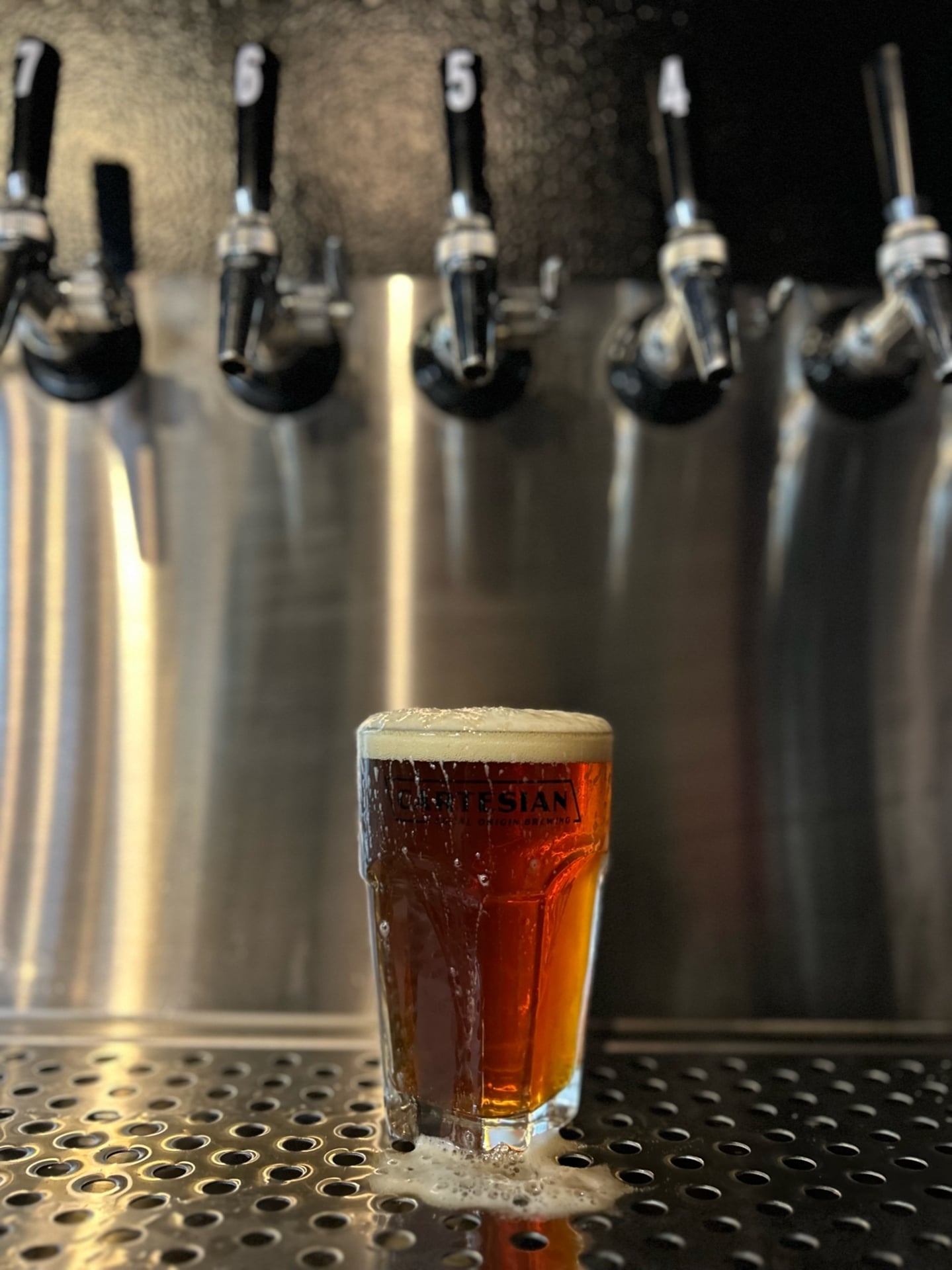
As he developed his beer recipes, he aimed to dedicate up to 40% of Cartesian’s draft list to beers that use some, or all, local malted grains. In the two years that it’s been open, Roth notes that most of his beers that feature local malts are malt-forward styles, like saisons, lagers and pilsners. Roth is a highly experimental brewer, and rarely brews the same beer twice. But one of Cartesian’s few core beers is Knockin’ About, a British-style golden ale that always uses a base of local malt and hop varieties grown in Michigan. It’s an easy-drinking sipper, akin to a light beer, coming in at between 4.5 and 5% ABV.
“We wanted the malt flavor to be dominant and shine through and show that you can make a simple, delicious crisp beer with local malt,” Roth notes. “A lot of times for our IPAs, especially hazy IPAs where the hops are the majority of the focus and costs, we’ll buy the macro malts because the malt flavor is overshadowed. It would be almost unfair of us to us a local premium malt for those beers.”
Sourcing local grains and hops can be more expensive than ingredients from big producers, but in Cartesian’s case, being a small brewery presents some advantages. Roth argues that for a smaller-production brewery where there is less economy of scale, there are a few factors that can help level out the pricing from local companies.
“When you buy grains from a large distributor or group, it’s cheaper to buy by the bag, but then you have to add in milling costs and factor in shipping and pallet costs,” he says. “Local companies charge less for delivery and less for milling, so in the end you’re paying 10-20% more for local grains and hops, and for us, paying a small premium for quality products is worthwhile.”
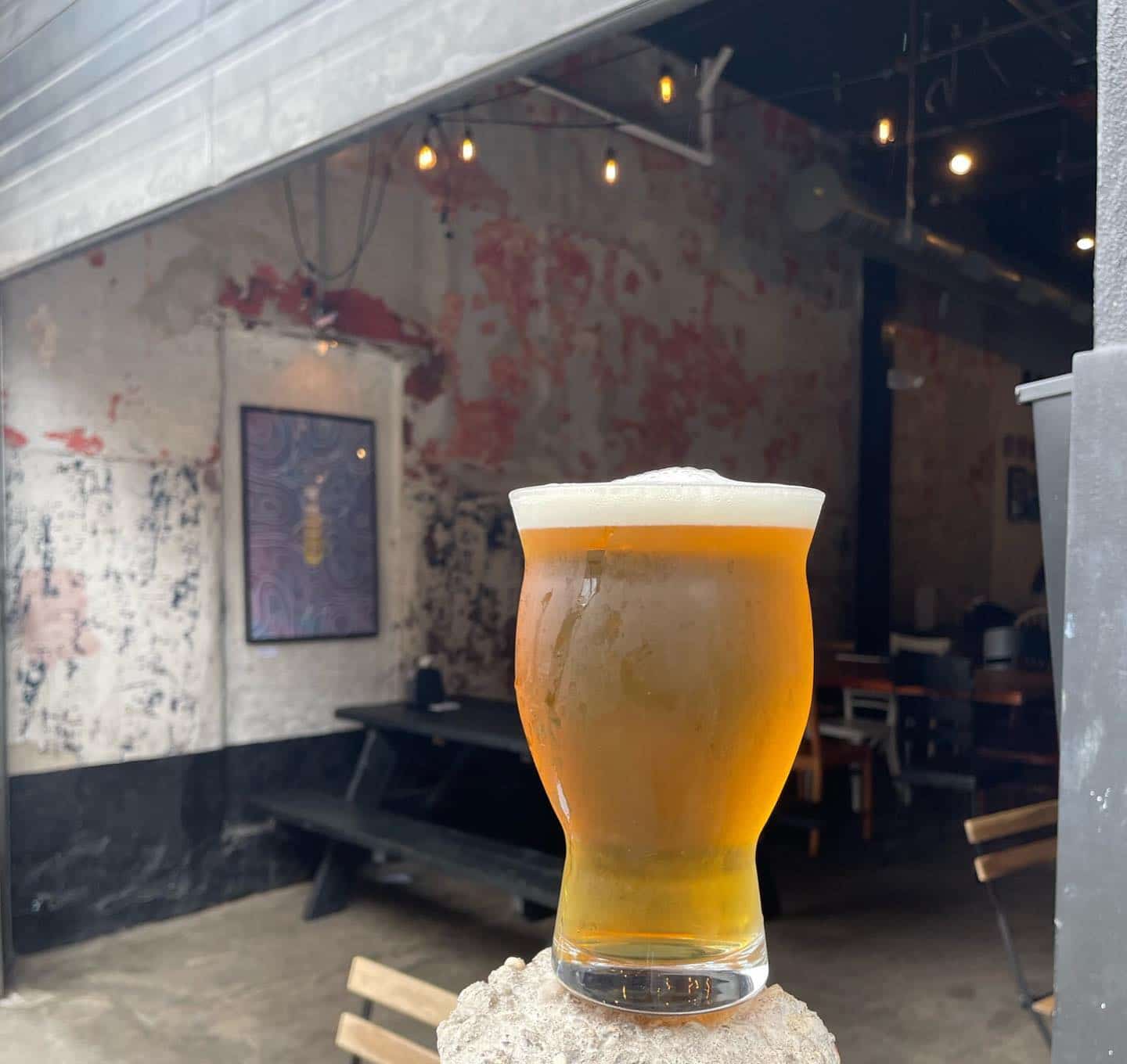
Cartesian also sources local malted oats, wheat and rye from Pennsylvania and New Jersey. Much like with malted barley, Roth chooses to use those grains when he wants those specific ingredients to be the star of the show.
For example, in the spring of 2023, Cartesian released a collaboration beer with South Philly Community Fridge, an American-style wheat beer called Neighbeers Helping Neighbors. It was made with piney, citrus-forward Tahoma hops from GEMS’s Hops in Carlisle, PA, and pale, wheat, and crystal malts from Deer Creek Malthouse in Glen Mills, PA. Much like his memories of chatting with local cheesemongers in high school, Roth appreciates how Cartesian’s beers made with PA ingredients help facilitate curiosity and conversation among the brewery’s customers. He’s constantly envisioning creative and imaginative ways to incorporate more local grains into seasonal and one-off beers.
“I have been dreaming of making a hazy IPA with local spelt, and of doing a lot more single hop beers where we can experiment with different hop flavors,” he says. “There was awhile where we never made the same thing twice — we always go off the wall and brew crazy things because they’re fun and educational, and our community is down for it!”
For more information on Cartesian Brewing, including its most up-to-date draft list, visit its website, and follow along on Instagram and Facebook.
Visit Cartesian Brewing at 1326 E. Passyunk Ave. in Philadelphia, PA; no phone.
This series is made possible by support from Deer Creek Malthouse through the Pennsylvania Malt and Brewed Beverage Industry Promotion Board and grant funding from the Pennsylvania Liquor Control Board.
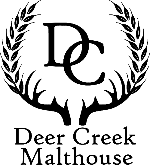
Deer Creek Malthouse (Glen Mills, PA) produces high-quality, flavorful malt ingredients made from local grain. Founded in 2012, Deer Creek is the first commercial malting operation in Pennsylvania since prohibition. The Company is dedicated to improving the regional grain supply chain for all stakeholders and leads many advocacy and value chain building initiatives, including the Philadelphia Grain & Malt Symposium. Deer Creek also produces a variety of consumer food and beverages using their grain and malt ingredients such as zero proof Barley Tea.
- Photos: Cartesian Brewing




